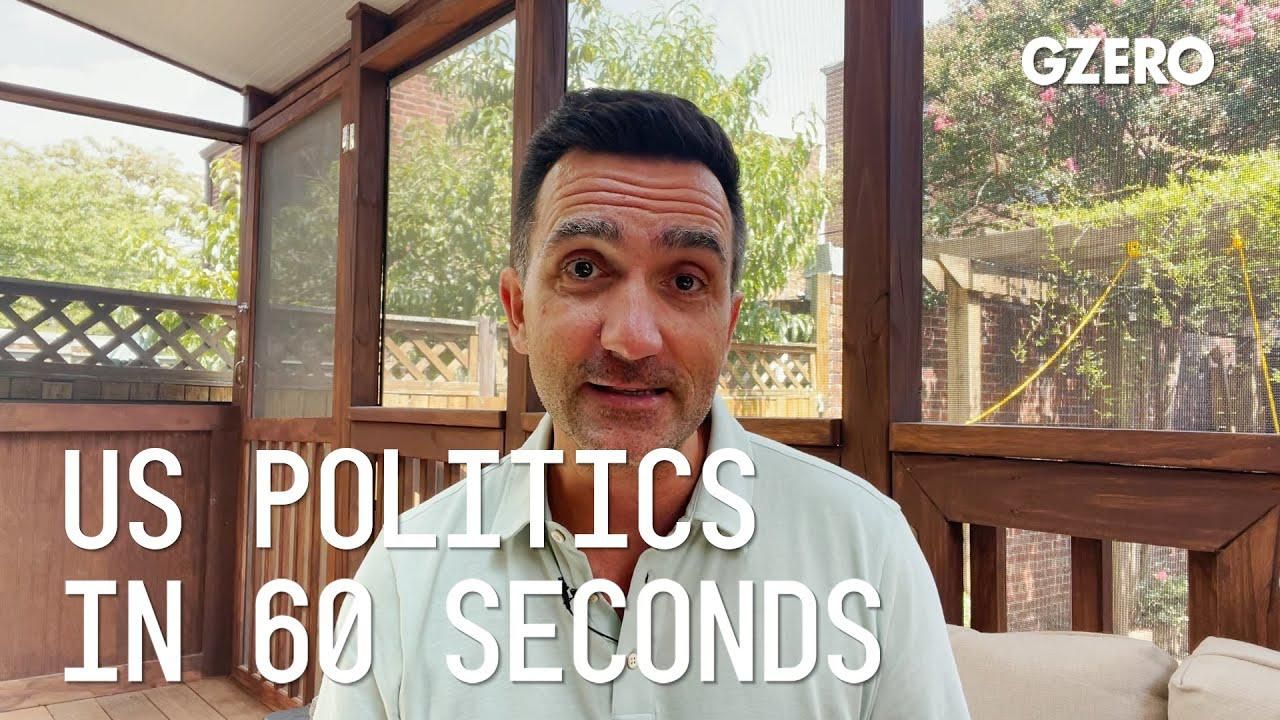US Politics In 60 Seconds
Senate's bipartisan $1T infrastructure bill could double US spending

Senate's Bipartisan $1T Infrastructure Bill Will Double US Spending | US Politics :60 | GZERO Media

Get insights on the latest news in US politics from Jon Lieber, head of Eurasia Group's coverage of political and policy developments in Washington:
The Senate passed a $1 trillion infrastructure bill this week. What do we know about that?
Infrastructure week is finally here, after many years of fits and starts on pressing a bipartisan infrastructure bill. The Senate moved one out of the chamber this week, as well as making progress on President Biden's $3.5 trillion follow-up spending plan. What's in the infrastructure bill? While it's a whole bunch of money for roads, bridges, tunnels, water projects, broadband deployment, airports, ports, all types of physical infrastructure, and it was done on a bipartisan basis.
How did they get it done? They finally figured out a way to pay for these things without actually having to raise taxes, partially by repurposing unused COVID-19 relief funds, but also through a series of budget gimmicks, which includes extending taxes that were set to expire, extending some fees that were set to expire, and changing around some Medicare rules. The end result is going to be probably a doubling of US infrastructure spending along with increase in deficits of between $200 and $300 billion over the next five to 10 years.
Is this a bipartisan victory for Biden? What will come next?
Well, this is a reasonably large bipartisan win for him. He thought it can get done. He insisted on getting it done, and it was probably necessary to get this done, so that moderate Democrats in the Senate would also vote for the much larger spending plan that's going to come next. Infrastructure's not done yet. We probably have months ahead of us in negotiation among the Democrats on the much larger $3.5 trillion bill. And then in the fall, perhaps as late as December, both bills are likely to pass the House, potentially with changes. You could see up to $2.5 or $3.5 trillion in new spending over the next 10 years, including a host of tax increases, designed to finance the second follow-on bill. President Biden's not gotten a big boost out of this so far, but he does check a box with moderate members of his conference who wanted to show that they can work with Republicans. Republicans also won from this because they showed the Senate still works, taking away some of the argument Democrats have for eliminating the Senate's supermajority rules known as the filibuster.
In this Quick Take, Ian Bremmer addresses the killing of Alex Pretti at a protest in Minneapolis, calling it “a tipping point” in America’s increasingly volatile politics.
Who decides the boundaries for artificial intelligence, and how do governments ensure public trust? Speaking at the 2026 World Economic Forum in Davos, Arancha González Laya, Dean of the Paris School of International Affairs and former Foreign Minister of Spain, emphasized the importance of clear regulations to maintain trust in technology.
Will AI change the balance of power in the world? At the 2026 World Economic Forum in Davos, Ian Bremmer addresses how artificial intelligence could redefine global politics, human behavior, and societal stability.
Ian Bremmer sits down with Finland’s President Alexander Stubb and the IMF’s Kristalina Georgieva on the sidelines of the World Economic Forum to discuss President Trump’s Greenland threats, the state of the global economy, and the future of the transatlantic relationship.